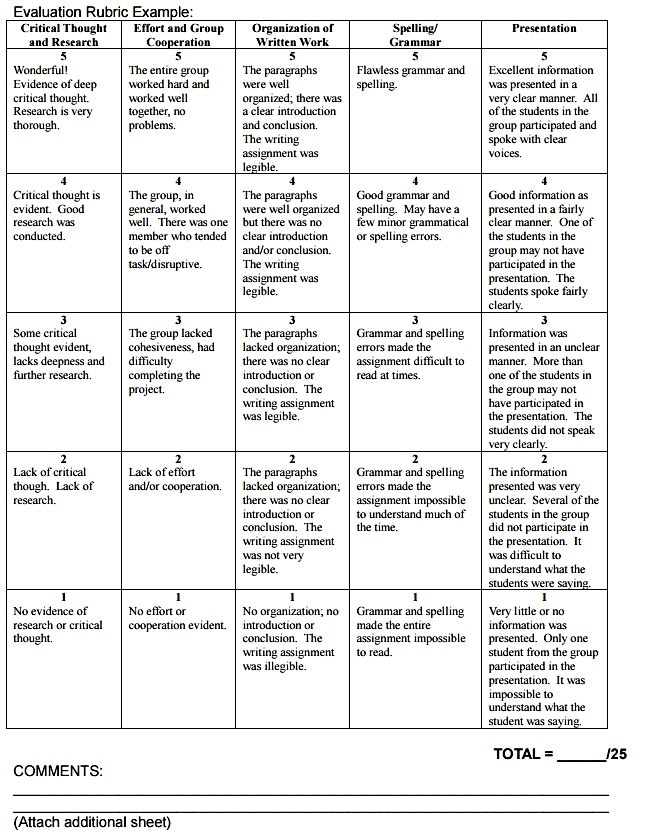Grades: 9-12 (Science, Chemistry and Biology)
Time: Two or three class periods
Space Requirement: Classroom, access to research resources, library, Internet
Methodology: Independent Learning, Research and Student Presentation
Objectives: Students will practice research skills. Students will gain a more intimate understanding of a topic that interests them. Students will practice presenting information through both written and oral communication.
Directions/Procedure:
- Decide whether students will be working individually, in pairs or in larger groups (you could have the students stay in the same groups that they were in for the experiments if you would like) or whether this will be their choice.
- Many details of the assignment will need to be tailored to the grade level of your class and how much time you wish to give the students to work on it. Create a sheet outlining the research project assignment and include a matrix based on how you would like to evaluate your students. A sample matrix, which you may use, can be found in the “For the Teacher” section below.
- Present the suggested topics, found in the “For the Teacher” section below, to the students. Add any additional topics that you feel are appropriate and allow the students to suggest topics which might interest them.
- Tell students that they will be working individually or tell them that they will be working in pairs/groups (depending on what you have decided in regards to their working arrangements). Place them in pairs/groups if you are going to make the groups for them or allow them to pick their partners/groups if they can make those decisions themselves. Distribute evaluation rubrics to the students so that they know how they will be graded.
- Allow the students to choose a topic for themselves.
- Two class periods can be dedicated to conducting the research. Students should be encouraged to find several sources by looking in the library and on the Internet. Advise students that many sources on the Internet are not reliable and that, to promote thoroughness and accuracy, they should try find at least three different sources of information. Information on several of these topics can be found on the SDWF website at
www.safewater.org/water-quality-information and www.safewater.org/fact-sheets
Encourage students to also conduct additional research as homework.
- Set an appropriate due date which will allow students to finish their research, if need be, and to write their report.
- The report need not be very long nor does it need to be in essay format (this may depend on the grade level; a longer, more detailed report may be expected of older students). The students should produce a few paragraphs stating what they learned through their research. Students should also be encouraged to include a statement on any interesting sources they found; maybe some students will have read actual scientific papers on their topic (perhaps high school students should be encouraged to do so). If some students have difficulty finding sources on the topic they chose it might be just as interesting for them to write about why they think more information on that topic is not available.
- If an additional class period is available each student or group should give a short presentation to highlight what they found regarding their topic.
- You may find it useful to discuss research skills with your students after their presentations. In general, how can your students improve their research skills the next time they have a similar project?
Evaluation: Students can be evaluated on how effectively they used the class time provided to complete their research, the number and quality of sources they used, and on completing the assignment by the due date.
Students can be evaluated based on whether they show that they have put a grade appropriate level of consideration into their writing, whether they have learned anything from their research, and whether they have offered any insights into the topic as well as into their research methods. For such a writing assignment it might be best to point out grammar and spelling errors on the students’ papers so that they can see the mistakes that they made when you return the papers to them but it is the teacher’s decision whether these errors affect the students’ marks. A rubric example is attached.
For the Teacher:
Suggested Research Topics
- What is the chlorination process commonly used in drinking water treatment facilities? How does breakpoint chlorination work and why is it used?
- What processes add ammonia to soil and groundwater? This can include agricultural and industrial activities as well as natural processes.
- What are some other practical applications of bacteria (production of dairy products, vinegar and ethanol, waste treatment) and how do they work?
- What are some specific health risks caused by excess bacterial activity in drinking water and what are some methods that can be used to minimize these risks?
- What is the current state of drinking water advisories in Canada? How long are boil water advisories usually in place? Where are boil water advisories most often put in place? What are the causes of the poor water quality that results in the boil water advisories?
Related Links:
www.safewater.org/water-quality-information
www.safewater.org/fact-sheets


